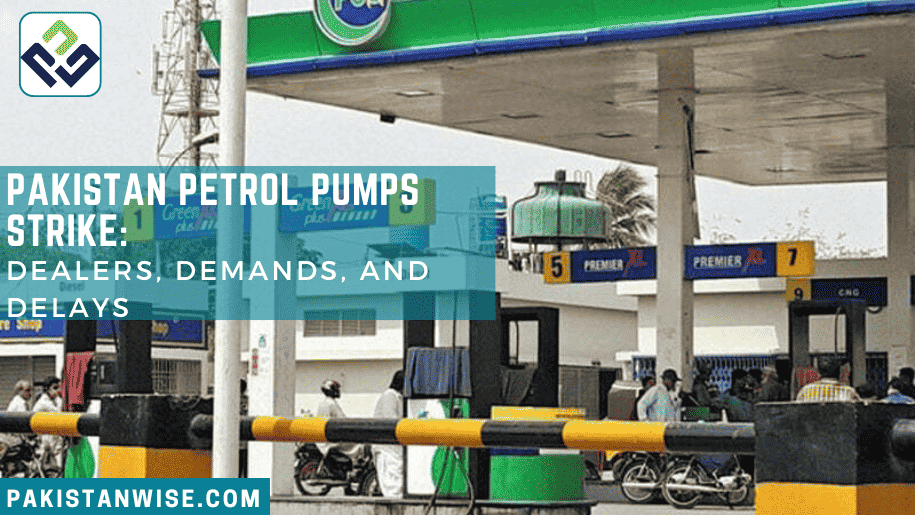In a recent development, the Pakistan Petroleum Dealers Association (PPDA) has announced the postponement of their planned Pakistan Petrol Pumps Strike, which was set to cause gas stations across the country to close. The decision came after a meeting with State Minister for Petroleum, Musadik Malik, who assured the group of a review of their profit margins.
Despite the minister declining their request for a 5% increase, he pledged to personally gather data from thousands of stations to determine fair profit margins for retailers. The reasons behind the planned strike, the association’s demands, and the government’s response, shedding light on the challenges faced by the petroleum industry in Pakistan.
Background and The Threatened Petrol Pump Strike in Pakistan:
The PPDA, representing petroleum dealers across Pakistan, had issued a stern warning regarding their intention to shut down all petroleum pumps permanently. The reason behind this ultimatum was the government’s failure to fulfill its commitment to increase the profit margins for dealers to 5%. This had led to a sense of frustration and discontent among the dealers, prompting them to consider drastic measures to assert their demands.
Spokesperson Abdul Sami Khan conveyed the association’s concerns during a press conference held at the Karachi News Club. He expressed that the current profit margin per liter was inadequate and emphasized the need for a Rs5 increase to bring it to Rs11. Such an adjustment would provide the dealers with a reasonable margin to sustain their businesses in the face of various challenges, including an increase in operating costs.
Government’s Response and Minister’s Promise:
The association’s demands caught the attention of State Minister for Petroleum, Musadik Malik, leading to a meeting between the minister and the PPDA representatives. While the minister did not grant the full 5% increase they sought, he assured them of a thorough review of their profit margins.
To accomplish this, Musadik Malik vowed to personally collect data from a significant number of gasoline stations, ranging from 2,000 to 3,000, to obtain a comprehensive understanding of the market conditions and factors affecting dealer revenues.
The minister’s decision to delve into the matter was a step forward in addressing the concerns of the dealers. It demonstrated the government’s willingness to engage in a dialogue and explore a fair solution that would be beneficial for both the dealers and the overall petroleum industry.
Illegal Trade of Iranian Gasoline and Diesel:
Abdul Sami Khan, the PPDA representative, also raised another critical issue during the press conference. He accused the government of turning a blind eye to the rampant illegal trade of Iranian gasoline and diesel within the country. This illegal activity has had a severe impact on the official petroleum dealers’ income, causing it to plummet by approximately 30%.
The smuggling of Iranian petroleum products not only results in revenue loss for the government but also creates an uneven playing field for legitimate dealers. The illegal trade undermines the efforts of authorized retailers to sustain their businesses and forces them to operate under challenging circumstances.
Related Article: Pakistan Refinery and Airline Communication Acquire Shell Pakistan
Conclusion:
In conclusion, the Pakistan Petroleum Dealers Association’s decision to postpone the strike marks a moment of respite for consumers who rely on gas stations for their daily fuel needs. The assurance from State Minister Musadik Malik to review profit margins provides a glimmer of hope for the dealers in their pursuit of fair compensation for their services. However, the issue of illegal trade in Iranian gasoline and diesel remains a significant concern that demands the government’s urgent attention and action.
Finding a solution to these challenges will require cooperation and active communication between the government, petroleum dealers, and other stakeholders. Balancing the interests of all parties involved will pave the way for a sustainable and thriving petroleum industry in Pakistan. As the situation unfolds, it is crucial to remain vigilant and ensure that the promises made are fulfilled to establish a conducive business environment for all involved.

